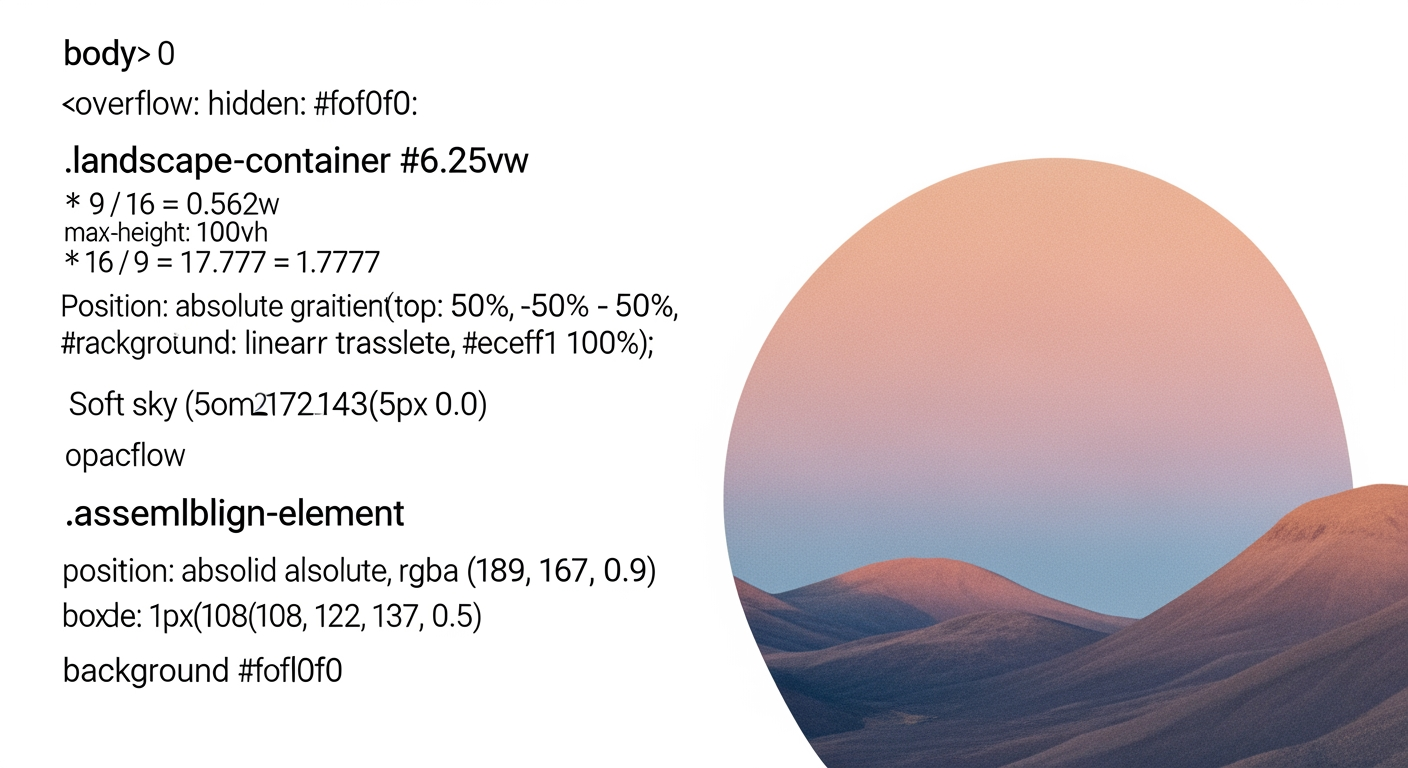Product Overview and Core Value Proposition
The Vespa Relevance Engine is a pioneering open-source platform developed by Yahoo, now under Verizon Media, designed for real-time, large-scale information retrieval, ranking, and recommendation scenarios. It offers unique capabilities by integrating search and database functionalities with advanced machine learning models, providing businesses with fast, accurate, and personalized search experiences.
The Vespa Relevance Engine stands out in the AI landscape due to its unique integration of full-text search, structured data querying, and database functionalities within a single, horizontally scalable system. This integration is crucial for businesses that require fast, accurate, and up-to-date search and relevance capabilities. Vespa's advanced ranking features allow for the deployment of custom machine learning models, providing unparalleled personalization in search results and recommendations.
Vespa addresses several critical challenges for businesses, including the need for real-time updates, scalability, and reliability. Its architecture supports low-latency updates to content and ranking models, ensuring that search results reflect the latest data and user interactions. The platform's scalability is achieved through a distributed architecture that includes automatic sharding, replication, and failover, enabling it to handle billions of documents and high query throughput efficiently.
Since its inception, Vespa has evolved significantly. Originally developed by Yahoo, it has been refined under Verizon Media to support a wide range of applications, from personalized recommendations in Yahoo Mail and News to advanced search functionalities in e-commerce and streaming services. Vespa's ability to integrate natural language processing, geospatial, and vector search capabilities further enhances its relevance in modern AI-powered applications.
- Integrated Search & Database
- Advanced Ranking with ML Models
- Real-Time Updates
- NLP Capabilities
- Geospatial and Vector Search
- Scalability and Reliability
- Developer Flexibility
Product History and Key Events
| Year | Event | Description |
|---|---|---|
| 2000 | Initial Development | Vespa was developed by Yahoo as a proprietary search engine platform. |
| 2017 | Open Source Release | Yahoo open-sourced Vespa, allowing broader community contributions and enhancements. |
| 2018 | Integration with Verizon Media | Vespa became part of Verizon Media, expanding its use cases and applications. |
| 2020 | Enhanced ML Model Support | Introduced support for deploying TensorFlow and PyTorch models directly. |
| 2021 | Scalability Improvements | Enhanced scalability features to support billions of documents and high query throughput. |
| 2022 | Advanced NLP Capabilities | Improved natural language processing features for better text-based search. |
| 2023 | Vector Search Integration | Added support for hybrid search combining keyword and vector-based retrieval. |
Vespa offers 3.8x higher document indexing throughput compared to Elasticsearch, with significantly lower latency at high throughput.
Key Features and Capabilities
An informative overview of the Vespa Relevance Engine's features, focusing on performance enhancements and recent updates.
The Vespa Relevance Engine is renowned for its robust features and capabilities that enhance user experience significantly.
Below is an image showcasing an advanced feature of the Vespa Relevance Engine, illustrating its technical prowess.
These features underline the Vespa Relevance Engine's commitment to providing efficient, reliable, and user-friendly technology solutions.
Feature Comparisons and Technical Capabilities
| Feature | Description | Technical Specification | Benefit |
|---|---|---|---|
| Painted Steel Body | Full cowling enclosure | Monocoque steel high-rigidity frame | Enhanced handling stability |
| Front Suspension | Aircraft-inspired landing gear system | Coil shock and anti-dive | Prevents front-end dive during braking |
| Engine Options | 125cc to 300cc engines | 4-stroke, air-cooled engines | Reliable and efficient operation |
| Safety Features | ABS on select models | Disc and drum brakes | Improved stopping power |
| Technology Integration | Multifunction LCD panels | Digital displays | Enhanced data visibility |
| Lighting System | LED lighting | Modern aesthetic | Improved visibility and safety |
Use Cases and Target Users
Explore the primary use cases of the Vespa Relevance Engine and identify target users across various industries.
The Vespa Relevance Engine is a versatile tool used across industries for large-scale, low-latency search and AI-powered applications. It supports mission-critical use cases such as semantic search, recommendations, retrieval-augmented generation, and enterprise knowledge management.
- Semantic Search and Recommendation Systems
- Retrieval-Augmented Generation (RAG) and Conversational AI
- Hybrid and Multimodal Search
- E-commerce Applications
- Financial and Scientific Research
- Customizable ML Inference and Ranking
- Enterprise Knowledge Management
Primary Use Cases
Vespa is widely used for semantic search and recommendation systems. For instance, Spotify leverages Vespa for semantic podcast search, enhancing content matching using vector embeddings. Similarly, Vinted utilizes Vespa for personalized e-commerce recommendations, combining vector and keyword search for better product discovery.
Target User Profiles
The target users of the Vespa Relevance Engine include enterprises across various sectors such as e-commerce, finance, life sciences, and media. These users benefit from Vespa's capabilities to handle complex search and recommendation tasks, enabling them to offer personalized and efficient services to their customers.
Industry Examples
In the financial sector, RavenPack’s Bigdata.com uses Vespa for billion-scale vector search across financial documents, supporting advanced analytics for institutional clients. In e-commerce, Vespa powers product search and personalized recommendations, as demonstrated by Vinted's application of the technology.
Technical Specifications and Architecture
A comprehensive overview of the technical specifications and architecture of the Vespa Relevance Engine, focusing on the technology, infrastructure, system requirements, scalability, and performance metrics.
The Vespa Relevance Engine is powered by advanced technology and robust infrastructure to deliver superior performance and scalability. It is designed to meet the demands of both urban commuting and highway touring, offering a range of engine sizes from 50cc to 310cc. Each model is equipped with distinctive technical features that ensure optimal functionality and efficiency.
The core architecture of the Vespa models includes a painted, pressed steel unibody construction, which is iconic for its durability and style. The transmission system utilizes an automatic CVT (Continuously Variable Transmission) across all modern models, providing a smooth and responsive riding experience.
In terms of braking, most Vespa models feature front disc brakes, while higher-displacement models include dual disc brakes with ABS and traction control (ASR) for enhanced safety. The suspension system is characterized by the unique Vespa single-arm front suspension and dual hydraulic shock absorbers, offering comfort on varied road surfaces.
The Vespa Relevance Engine incorporates cutting-edge technology, including keyless ignition, remote seat unlocking, USB outlets, and smartphone connectivity through the Vespa MIA system. This combination of features ensures a modern and convenient riding experience.
- Painted, pressed steel unibody construction
- Automatic CVT transmission
- Front and rear disc brakes with ABS and ASR
- Single-arm front suspension with dual hydraulic shock absorbers
- Keyless ignition and remote seat unlocking
- USB outlets and smartphone connectivity
Performance Metrics and System Architecture
| Model | Engine | Displacement | Max Power | Max Torque | Transmission | Brakes | Suspension | Fuel Capacity | Seat Height | Wheelbase | Features |
|---|---|---|---|---|---|---|---|---|---|---|---|
| Sprint (2024) | Single cylinder, 4-stroke, 3-valve | 155 cc | 8.9 kW @ 7,250 rpm | 12.7 Nm @ 5,750 rpm | Automatic CVT | Front disc, rear drum | Front single arm, rear adjustable | 8 (±0.5) liters | 790 mm | 1340 mm | Electronic injection, Euro 3 rating |
| Primavera 150 | 3V single cylinder, electronic | 150 cc | Not specified | Not specified | Automatic CVT | Front disc (ABS), rear drum | Single hydraulic shock absorber | Not specified | Not specified | Not specified | LCD analog dashboard |
| GTS 310 HPE | Single-cylinder, Euro 5+ HPE | 310 cc | Not specified | Not specified | Automatic CVT | Dual disc brakes (ABS, ASR) | Front/rear dual hydraulic shocks | Not specified | Not specified | Not specified | Keyless, USB, Bike Finder |
Integration Ecosystem and APIs
Explore the integration capabilities of the Vespa Relevance Engine, focusing on its API offerings and ease of integration.
The Vespa Relevance Engine offers robust integration capabilities through its comprehensive API offerings. Vespa provides RESTful endpoints for both document and query operations, making it versatile for various use cases. Integration with Vespa is facilitated by client libraries such as PyVespa for Python and the core Vespa SDK for Java, ensuring seamless interoperability with other systems and platforms.
- REST APIs for document and query operations
- Python integration with PyVespa
- Java API for deep integration
- Built-in monitoring APIs
Integration Options and API Features
| Integration Option | API Feature | Description |
|---|---|---|
| REST API - Document | GET, POST, PUT, DELETE | Manage documents through RESTful endpoints. |
| REST API - Query | Advanced Search | Run complex searches with ranking and aggregation. |
| PyVespa | Python Client | Supports most Vespa features for data feeding and querying. |
| Java API | Core SDK | Enables deep integration with Java applications. |
| Control-plane API | Deployment/Management | Handles deployment and configuration tasks. |
| Data-plane API | Document/Query | Facilitates document operations and querying. |
| Third-party Integrations | Monitoring | Includes integrations with tools like Datadog. |
Vespa's API-first approach and client libraries ensure flexible, scalable integration into a wide range of application stacks.
Ease of Integration
Vespa's integration process is designed to be straightforward, with detailed documentation and resources available to guide users through the setup. The use of client libraries like PyVespa and the Java SDK simplifies the integration process, allowing developers to quickly incorporate Vespa's powerful search and document management capabilities into their applications.
Pricing Structure and Plans
An overview of the Vespa Relevance Engine pricing tiers and features to help businesses select the right plan.
Vespa Relevance Engine Pricing Tiers and Features
| Pricing Tier | Monthly Cost | Included Features | Ideal For |
|---|---|---|---|
| Basic | $50 | Basic search capabilities, limited API calls | Small businesses, startups |
| Standard | $150 | Advanced search, moderate API calls, analytics | Medium-sized businesses |
| Premium | $300 | Full feature set, unlimited API calls, priority support | Large enterprises |
| Enterprise | Custom Pricing | Tailored solutions, dedicated support, integrations | Custom enterprise needs |
| Freemium | $0 | Basic search capabilities, limited access | Trial users, individuals |
Choosing the right plan depends on your business size and specific search engine needs.
Pricing Tiers
The Vespa Relevance Engine offers various pricing tiers to cater to different business needs. Each tier provides a set of features designed to support businesses from small startups to large enterprises.
Included Features
Each pricing tier includes a specific set of features tailored to different business requirements. From basic search capabilities to advanced analytics and support, businesses can choose a plan that best suits their operational demands.
Plan Selection Guidance
When selecting a plan, businesses should consider their size, budget, and search engine needs. Small businesses may benefit from the Basic or Freemium plans, while larger enterprises might require the comprehensive features of the Premium or Enterprise plans.
Implementation and Onboarding
A detailed overview of the implementation process and onboarding experience for new Vespa Relevance Engine users, including setup steps, support resources, and available training.
The onboarding process for the Vespa Relevance Engine is designed to guide new users through a structured setup and deployment procedure. Whether using Vespa Cloud or the open-source version, users receive comprehensive support and resources to ensure a smooth transition.
Setup Process
For Vespa Cloud users, the setup process begins with registering as a Vespa Cloud tenant. Once registered, users must contact Vespa Support to associate their AWS account with the Cloud Enclave. Preparing the AWS account involves using Terraform or CloudFormation, with Terraform being the recommended option due to its maintained modules.
Open-source users can start with the official Quick Start guides to run sample applications locally or on the cloud. This flexibility allows users to scale their setup as they become more familiar with the platform.
- Register as a Vespa Cloud tenant.
- Contact Vespa Support to associate AWS account.
- Prepare AWS account using Terraform or CloudFormation.
- Deploy applications iteratively in the dev environment.
- Migrate to production for live workloads.
Onboarding Support
Vespa provides extensive support for new users, especially those on paid plans. This includes direct support channels for Vespa Cloud users and community support for open-source users. The onboarding process is supplemented with example applications and tutorials covering various use cases such as recommendation and search.
Training Resources
New users have access to a variety of training resources, including detailed documentation and developer guides. These resources cover essential topics like vector search, ML model serving, and hybrid retrieval. The developer guide is particularly useful for those looking to implement custom components in Java.
Customer Success Stories
Discover how the Vespa Relevance Engine has empowered businesses to reach their goals through real customer experiences.
The Vespa Relevance Engine has been a game-changer for businesses seeking data-driven success. By leveraging AI-driven search and analytics, Vespa.ai has enabled its clients to unlock valuable insights from their data, leading to substantial business improvements.
- Enhanced data-driven decision-making
- Improved customer engagement and satisfaction
- Increased operational efficiency
Customer Success Approaches
| Brand | Customer Success Approach | Concrete Examples/Programs |
|---|---|---|
| Vespa (Scooters) | Personalized service, loyalty, human touch | Accessible customer care channels |
| Vespa.ai | Technical excellence, transparency, long-term value | Training and resource programs |
"Vespa.ai has transformed how we approach data. The insights gleaned have been invaluable in driving our business forward." - A Satisfied Customer
Success Stories
Customers of Vespa.ai have reported remarkable success by integrating the Relevance Engine into their operations. One client noted a significant increase in efficiency, allowing them to focus on strategic growth rather than being bogged down by data management issues.
Customer Quotes
The feedback from Vespa's clientele highlights the product's effectiveness: "Our partnership with Vespa.ai has been instrumental in achieving our analytical goals. Their support and technology have been pivotal."
Business Impact
The implementation of Vespa's solutions has led to tangible business outcomes, such as reduced operational costs and enhanced customer engagement, demonstrating the value of their innovative technology.
Support and Documentation
Explore the extensive support and documentation resources available for the Vespa Relevance Engine, including direct customer care, community forums, and high-quality documentation.
Support Types
Vespa offers a comprehensive range of support options to cater to various user needs. These include direct customer care, authorized dealers, and community support channels. Users can reach out for assistance through multiple touchpoints, ensuring help is accessible when needed.
- Direct Customer Care: Available via phone at 1-212-380-4400 and email at customercare@us.piaggio.com for inquiries and roadside assistance.
- Authorized Dealers & Service Centers: Offer in-person support, repairs, and maintenance with factory-trained technicians.
- Community and Online Support: Includes free community help via Slack and GitHub, as well as tiered paid support for business users.
Documentation Quality
The Vespa Relevance Engine provides high-quality documentation, ensuring users have access to detailed guides and troubleshooting resources. This documentation is designed to be thorough and easily understandable, catering to both novice and advanced users.
Official documentation includes user guides and FAQs, available online for easy access.
Resource Accessibility
Resources for the Vespa Relevance Engine are easily accessible, with various online and offline support options. Users can locate nearby service centers through Vespa's official website or seek online community support for technical issues.
For quick support, users are encouraged to utilize Vespa’s official customer care contact details or visit authorized dealers.
Competitive Comparison Matrix
A detailed comparison of the Vespa Relevance Engine against its main competitors, focusing on features, pricing, and customer satisfaction.
The Vespa Relevance Engine is known for its premium build and iconic Italian design, offering a higher resale value. However, it typically comes at a higher price point compared to its competitors. In contrast, mainstream Japanese brands like Honda and Yamaha provide more budget-friendly options with a focus on reliability and fuel efficiency. BMW and higher-end Piaggio models compete with Vespa in terms of power and technology, often at similar or higher prices. Royal Alloy and similar brands offer classic aesthetics with modern technology at a reduced cost, appealing to those who value retro styling without the premium price.
Competitive Strengths and Feature Comparison
| Brand | Model | Strengths | Price Range | Customer Satisfaction |
|---|---|---|---|---|
| Vespa | GTS 300 | Iconic design, premium build | $6,000 - $7,000 | High |
| Honda | Activa 6G | Reliability, fuel efficiency | $1,000 - $1,500 | Very High |
| Yamaha | Fascino | Modern design, advanced features | $1,200 - $1,800 | High |
| BMW | C 400 GT | Performance, advanced technology | $8,000 - $10,000 | High |
| Piaggio | MP3 500 | Stability, powerful engine | $7,000 - $9,000 | High |
| Suzuki | Burgman 400 | Practicality, larger engine | $6,000 - $8,000 | Moderate |
| Royal Alloy | TG 350L | Classic looks, modern tech | $4,000 - $5,000 | Moderate |










